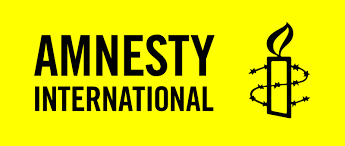AUTHOR: Tanaaz Shahariyar
The Kingdom of Saudi Arabia has a history of human rights violations. This has been documented over the years with several organizations calling out the country for its disparities in gender treatment, the horrific treatment to its workers, the brutal suppression of opposing political thought and curtailing freedom of expression among others. A mechanism which allows human rights abuses to continue is the ‘Kafala’ system.
The ‘Kafala’ system (or sponsorship) is practiced throughout the Gulf Arab States. Essentially, it allows for the Kafeels (the employers) to have complete control of foreign workers. Historically, the Kafala system was meant to be hospitable and the employers trusted to care for those under them. However, in the last several years, there have been numerous cases of exploitation of foreign workers under the system. Each case is horrific yet there are some common themes; employers have been known to confiscate passports and trap the workers, place them in unhygienic living conditions and also push them to work 14-16 hours without breaks. They are restricted from switching jobs, exiting the country freely and there are virtually no opportunities to join a trade union or voice their grievances.
There are over 13 million foreign nationals in Saudi Arabia–they contribute to over 77% of the private sector workforce. There are stories that go unheard and remain buried or are forgotten. This particular one, follows Amazon–one of the largest e-commerce companies in the world. In 2020, Amazon began trading in Saudi Arabia and has been steadily expanding its operations. Amazon opened a new warehouse as a result, where millions of items are selected, packed, and shipped to customers across the country and hired thousands of workers to manage it. Amazon relied heavily on migrants from low-income countries searching for their golden ticket to work for a global company.
Amazon’s warehouse–or its ‘fulllment center’ as it’s called–includes a large number of migrant workers from Asia and Africa, who are often vulnerable to abuse under the sponsorship system. It is very common in the Middle East to hire migrant workers from these countries and then pay them a pittance. In Amazon’s Saudi operations, the workers were hired by two third-party employment agencies: Abdullah Fahad Al-Mutairi Support Services Co. (Al-Mutairi) and Basmah Al-Musanada Co. for technical support services (Basmah).
Amnesty International published a research report, outlining the situation with information based on 22 men from Nepal who worked at the warehouses in Riyadh or Jeddah between 2021 and 2023. All but one of these men had to pay recruitment fees which amounted to an average of $1500 and left them with high-interest loans before they even left their home country. During the recruitment process, the agents misled the workers into believing they would be employed directly by Amazon. The workers only became suspicious and learned the truth hours before their ight, when they received their contracts. Still, they were told it was “an Amazon branch”.
In Saudi Arabia, the workers were subjected to harsh conditions, housed for months in dirty and overcrowded accommodations, sometimes infested with bed bugs. The contractors often withheld part of their salaries and/or food allowances. Despite the contract being for 2 years, the workers were only employed for 12 months before the work ended. Afterwards, the contractors put the ‘unemployed’ into worse accommodations and stopped paying their salaries altogether.
As of February 22, 2024, Amazon has paid US $1.9 million to reimburse more than 700 workers connected to its Saudi operations. It is a start to remedying the horrors so many migrant workers faced but this is not the end. There are thousands of other stories – the majority of them which never even reach this stage. Companies must ensure stricter measures and take note of worker complaints while the government should push for the safety of all the workers under their care, whether they’re citizens or not.
Sources:
https://www.amnesty.org/en/documents/mde23/7229/2023/en/ https://www.amnesty.nl/actueel/amazon-misleidt-en-buit-arbeidsmigranten-uit-in-saudi-arabie https://www.amnesty.org/en/latest/news/2024/02/saudi-arabia-amazon-reimburses-workers-for-unla wful-fees-following-amnesty-international-report-highlighting-abuses/

